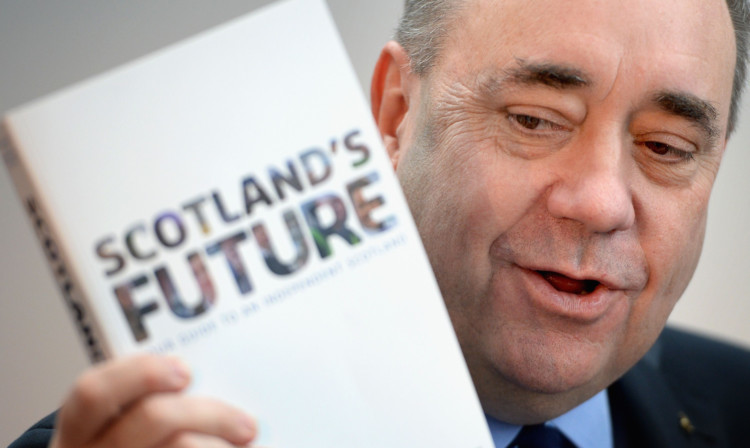Promises made by the Scottish Government in its independence White Paper will cost taxpayers £1.6 billion a year, according to a Treasury analysis.
The price tag would meet the costs of three “unfunded” policy commitments in the Scotland’s Future document, published last month, the UK Government department claims.
Officials looked at proposals to provide 1,140 hours of childcare a year, cutting air passenger duty by half and cutting corporation tax by three percentage points.
The government of an independent Scotland would need to find about £1.0 billion, in 2011-12 prices, of additional annual tax revenue or spending cuts by the end of the first parliamentary term, they calculated.
The “cautious estimate” would rise to £1.6 billion by the end of the second Parliament, which would start in the early 2020s.
The bill is similar to the amount spent on Scotland’s police and fire services, according to the analysis.
The Treasury said “insufficient details” in the White Paper made it impossible to work out costs for scrapping air passenger duty, increasing national insurance employment allowance, returning Royal Mail to public ownership and possibly reducing the state pension age.
Chief Treasury Secretary Danny Alexander said: “The reality is that the White Paper shows nothing about how they would pay for these commitments. The Scottish Government cannot claim it is going to spend what it will not have.
“Within the UK, Scottish businesses are benefitting from the substantial cuts in corporation tax the coalition has delivered, and Scottish families will benefit from tax-free childcare in 2015. Both of these policies bring big benefits to Scotland at no cost to the Scottish Government budget, proving once again how well the UK works for Scotland.
“The real choice next year is between unfunded promises that ignore the realities of being a new and separate country or an economic, political and social union – in the UK – that has stood the test of time. I believe we are better together and I look forward to continuing to make that case in 2014.”
Deputy First Minister Nicola Sturgeon said Mr Alexander’s figures “are all over the place”.
The figures ignore the impact of the economic and social policies outlined in the White Paper such as a planned reduction in corporation tax, the Scottish Government said.
Ms Sturgeon added: “In September, the No campaign were claiming a funding gap of £32 billion, by last month that had shrunk to £10 billion, and now they are saying it is £1.6 billion all these figures are wrong, but at this rate even the No campaign will be predicting a healthy surplus by the time the referendum arrives.
“This analysis completely ignores the dynamic impact of the policies we are proposing to increase economic activity, which will boost growth and tax revenues.
“But the most serious point behind all this is that the vastly different choices in spending priorities has now been laid bare. Westminster is pressing ahead with a new generation of weapons of mass destruction, at a cost of up to £100 billion, and at the same time is attacking the Scottish Government’s plans to transform childcare in an independent Scotland.
“Danny Alexander and his Tory colleagues at the Treasury are having to borrow vast sums to balance the books, while the Scottish Government is delivering on all our headline policies within a fixed budget year after year.
“People in Scotland are sick and tired of the lecturing and the hectoring from the No campaign, as Boris Johnson has now conceded – and contributions like this will only help push more people towards a Yes vote.”
